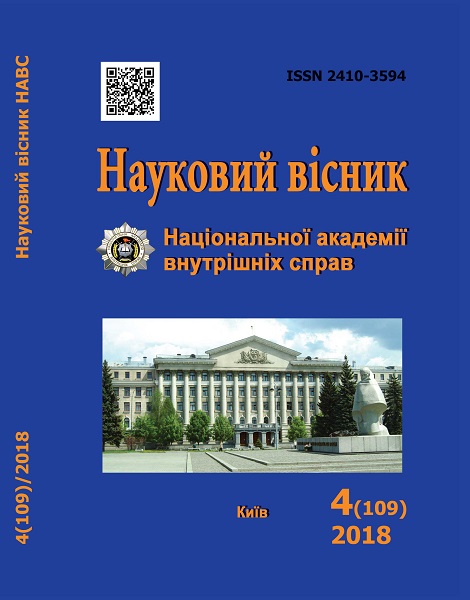Emotional State of the Person: Criminal-Law and Victimological Aspects
Abstract
Тhe article comprehensively deals with the emotional state of a person in the victimological and criminal-law context. The peculiarities of the personʼs influence on the occurrence and the legal assessment of the emotional state of the perpetrator are determined. The norms of the Criminal Code of Ukraine are analyzed, in which the presence of an emotional state of a person is envisaged and a system of their unification is proposed. Emotions as a separate category are not exclusively criminal or legal - they are traditionally studied by various branches of science, which can include psychology, forensic psychiatry, legal psychology, etc. Definition of the concept of emotions in different sciences is not the same, and this, in turn, affects the fact that the theoretical provisions of criminal law regarding the emotional state used in legislative, law enforcement and expert activities contain a number of ambiguous points that require further scientific reflection. Emotions, in general, represent one of the obligatory elements of any active human behavior, including crime. At the same time emotions act in the form of experiences, which, in turn, reflect, first of all, a subjective attitude to those or other phenomena of objective reality, which surround a person. It should be noted that criminal law considers emotions to be a special type of subjective psychological states (reactions to internal and (or) external influences). In the theory of criminal law, the emotional state is a special legally significant psychological state of a person who, acting on his will and consciousness, interacts with the features of the crime (first of all, his subjective side) and thus determines the features of the criminal-law assessment of the act, envisaged by the relevant article of the Special Part of the Criminal Code of Ukraine, and also affects the resolution of issues related to the individualization of punishment.
Downloads
Abstract views: 253 PDF Downloads: 2393
- Authors reserve the right to authorship of their own work and transfer to the magazine the right of the first publication of this work under the terms of the Creative Commons Attribution License, which allows other persons to freely distribute published work with mandatory reference to authors of the original work and the first publication of an article in this magazine.
- Authors have the right to enter into separate additional agreements on non-exclusive dissemination of the work in the form in which it was published in the journal (for example, to post an article in the institution's repository or to publish as part of a monograph), provided that the link to the first publication of the work in this journal is maintained.
- The journal's policy allows and encourages the posting of articles by authors on the Internet (for example, in electronic storehouses of institutions or on personal websites), both before the submission of this manuscript to the editorial office and during its editorial processing, as this contributes to the creation of a productive scientific discussion and positively affects the efficiency and dynamics of citing the published work.




